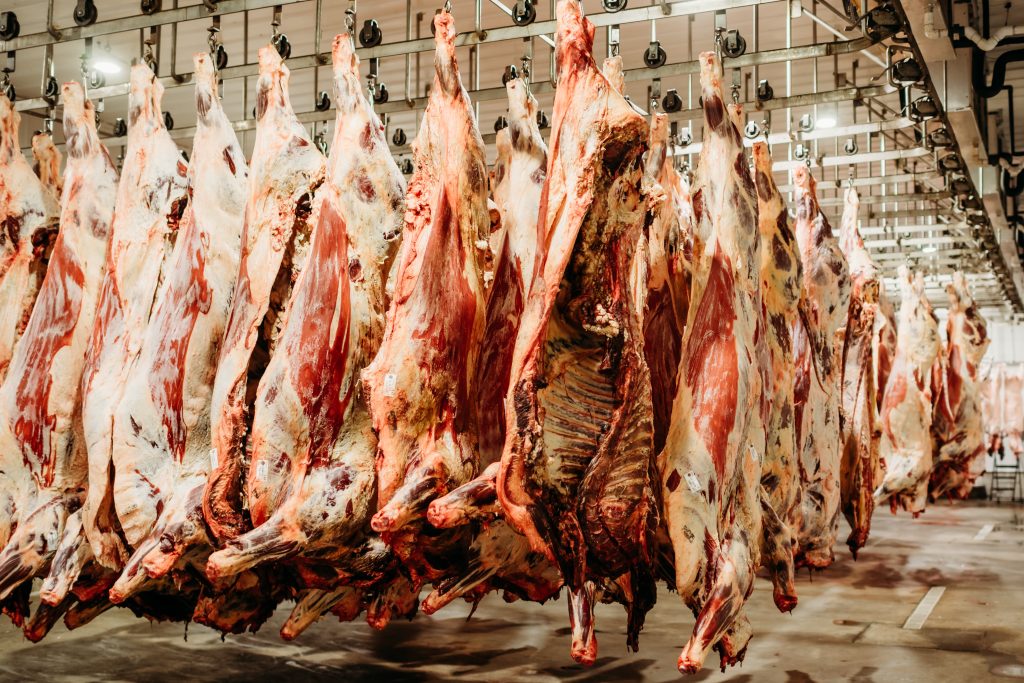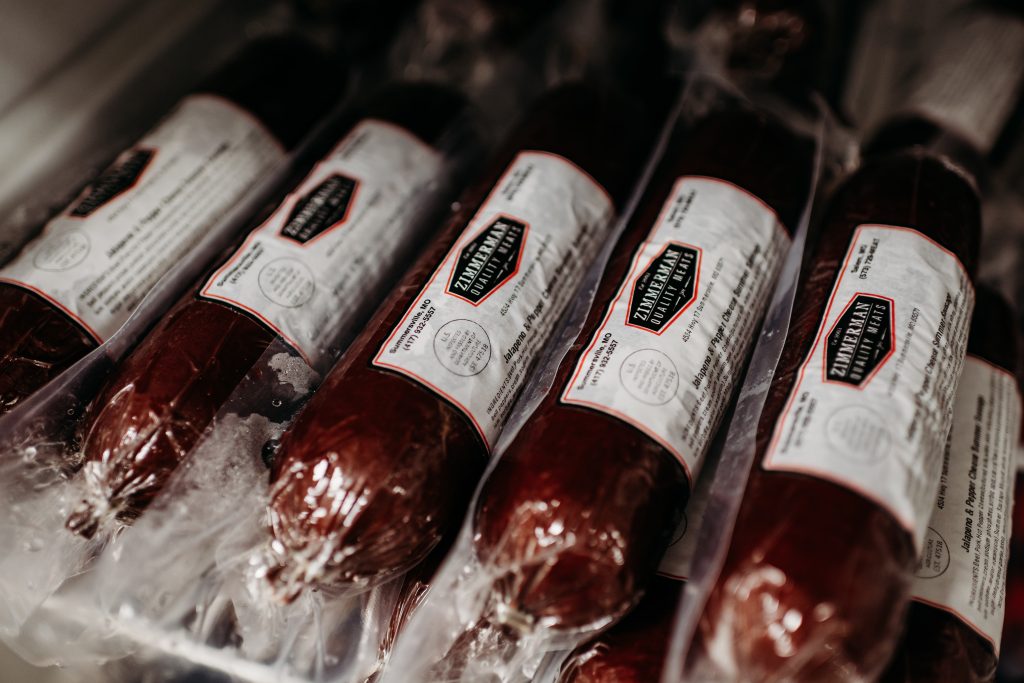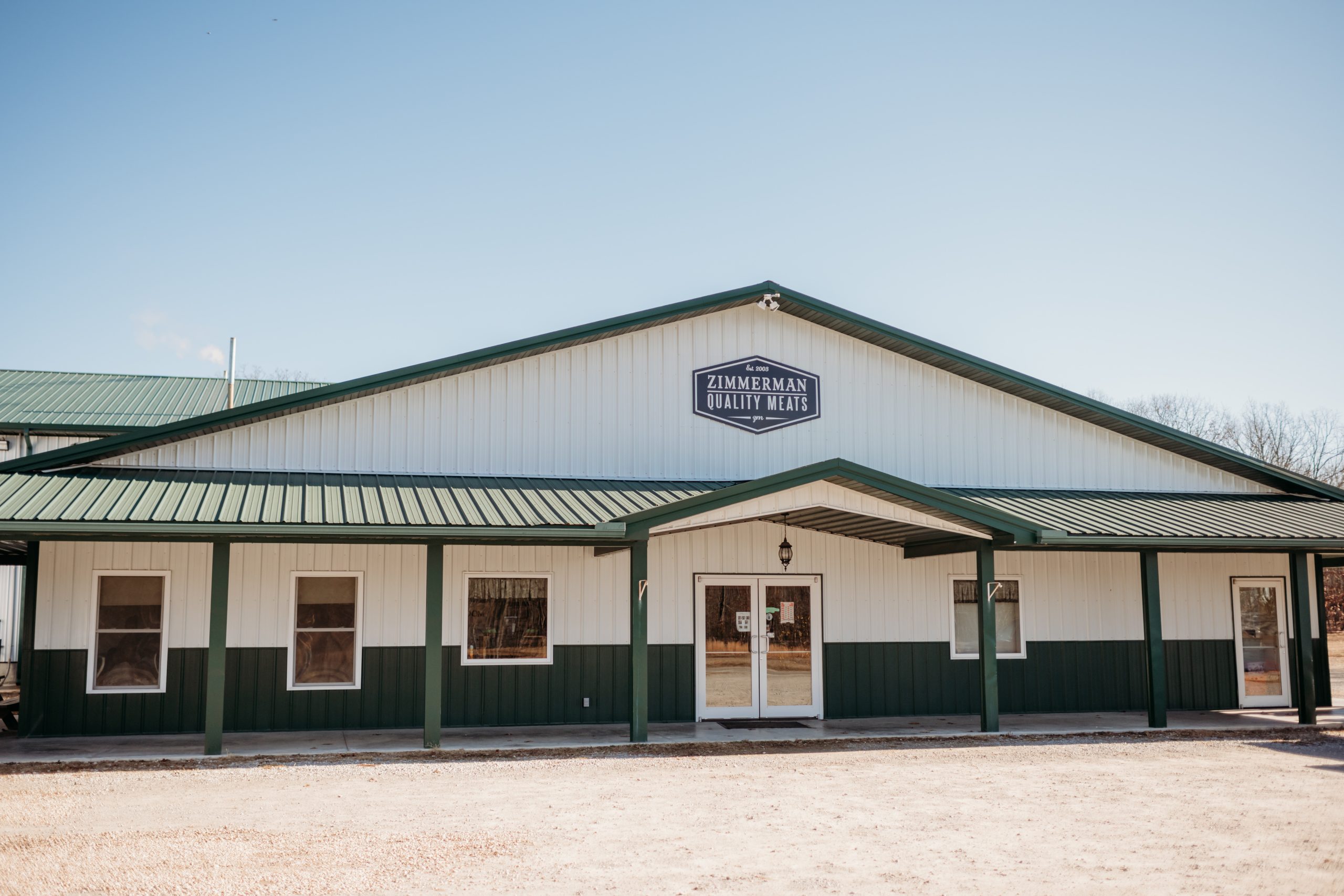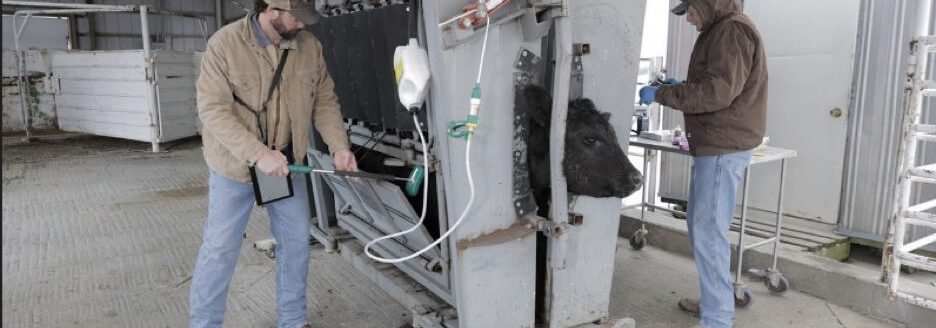Zimmerman Meats is a smaller meat processor in Summerville, Missouri, that recently received a $730,000 grant from the USDA’s Meat and Poultry Processing Expansion Program.
That program was set up to give $1 billion in funding as part of the American Rescue Plan following concern about meat processing plant disruptions and soaring meat prices during the COVID-19 epidemic. The goal was to encourage expansion and innovation among the smaller processing plants.
A 2022 analysis published in the Journal of Agriculture, Food Systems, and Community Development showed that “76% of meat processors [in Missouri] perceived that their business was in better or much better condition than before the COVID-19 pandemic, reflecting their adaptability to the disrupted meat supply chain,” but added, “However, small-scale meat processing facilities were limited by the labor shortage, complicated regulations and high regulatory compliance costs, a lack of consistent supply, and limited access to tools and equipment.”
Most U.S. meatpacking and processing is dominated by the Big Four of Tyson, Cargill, JBS and National Beef Packing, which together are responsible for almost 50% of American beef consumption, while the smaller processors only account for 1% of American beef consumed.
Nevertheless, smaller operators can do well in the right market niche. Zimmerman, pictured above, occupies a unique position as a service provider to farm-to-market producers all over southern Missouri.
Isaac Keene, general manager at Zimmerman, told High Plains Journal that Zimmerman itself has two retail-only outlets in addition to one in Summerville, but its main business is providing services to other producers who are developing direct-to-consumer businesses. Keene said the grant reimbursements are going for new equipment and workforce development.
Adding new producers
Since being selected for the grant, Keene said he has added nearly two dozen new producers who bring in their beef, pork and lamb for processing under their own labels—then it’s up to the producer to take the protein to market.
“We are a service provider, but we are not the distribution channel. Most of the protein we process goes right back to the producers,” he said.

The arrangement benefits Zimmerman because it allows the company to focus on a smaller client pool of producers, and leaves space for local producers, in turn, to develop and sustain relationships with their respective consumers.
Adding new products
“We will now have the capacity to provide the producers with value-added products,” like beef jerky and meat sticks, Keene said. “Shelf-stable meat products are a really popular category right now.”
Before the improvements, Zimmerman provided traditional cuts: steaks, roasts, and ground beef from cow carcasses, or hams, bacon and sausage from pork carcasses. “We will now have increased capacity to provide the producers with new value-added products,” like beef jerky and meat sticks, Keene said. “Shelf-stable meat products are a really popular category right now.”
A portion of Zimmerman’s customer base is always changing, however. “Not everyone who can raise a sustainable hog knows how to market it,” said Keene. “It’s always disappointing when we see those producers struggle.” He cited the example of a small producer of chickens and geese (which Zimmerman doesn’t process) who wants to expand and is having difficulty finding a USDA poultry processor within 80 miles.
Keene said the MPPEP program operates on a reimbursement basis, meaning Zimmerman has to cash-flow the entire expansion project itself. Keene said the MPPEP program is targeted to help already-established operators expand and develop further, not necessarily as a bail-out to help struggling operators. “We had to show (USDA) our plans for expansion and do a feasibility study,” he said.

Zimmerman occupies a good place in the market by helping producers deliver value to their consumers, and Keene said the local demand for processing continues to grow.
Missouri participates in the Cooperative Interstate Shipping Program, by which 29 participating states with in-state inspection programs ‘at least equal’ to USDA standards have arranged to ship product in interstate commerce, and have mutually agreed under specific conditions to accept each other’s state-inspected meat products.
David Murray can be reached at [email protected].




